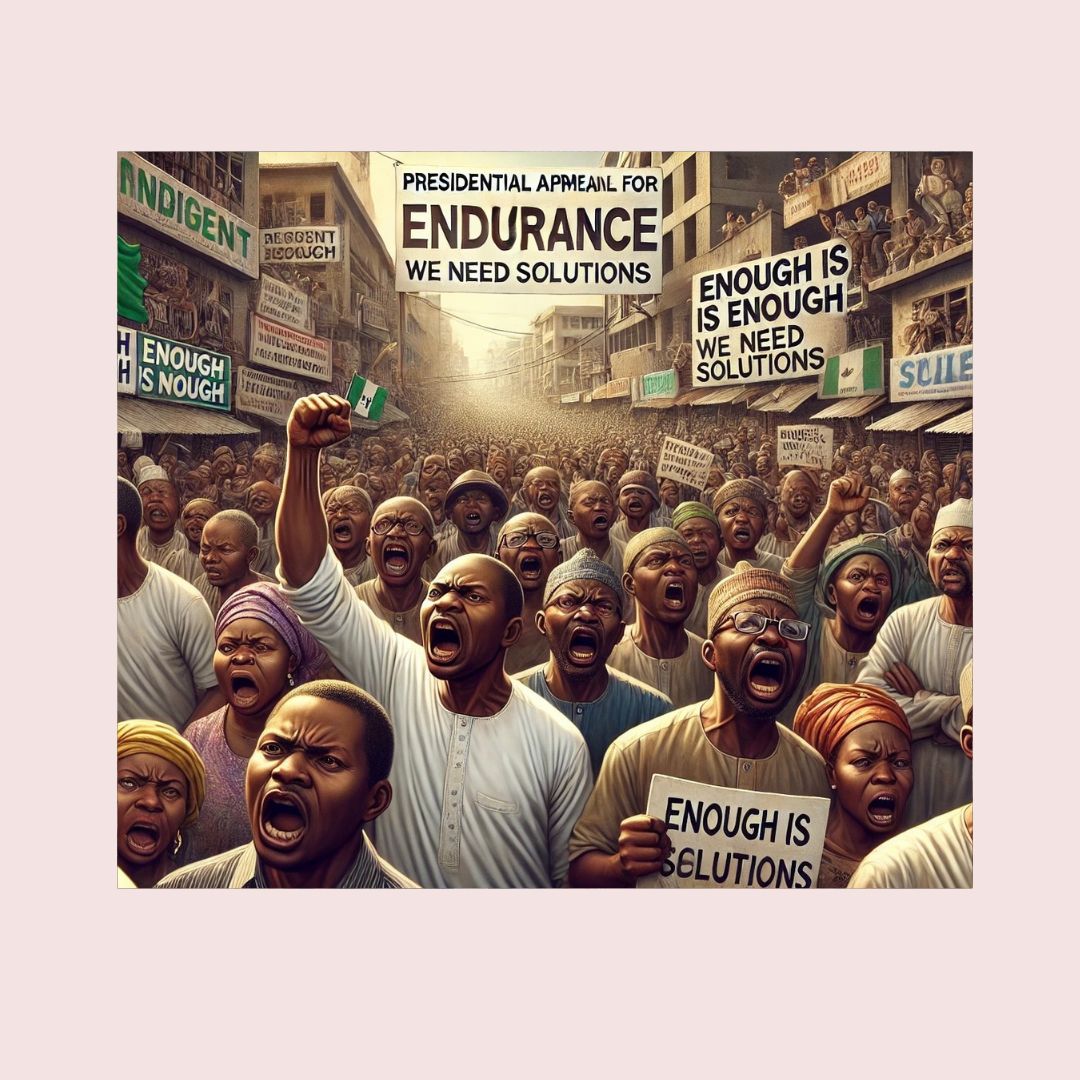Nigerians react harshly to President Bola Tinubu’s call for patience amid the country’s severe economic strain.
At the 48th convocation of Obafemi Awolowo University (OAU), President Tinubu appealed to Nigerians to endure. He acknowledged the nation’s harsh economic reality, but urged citizens to endure the “unintentional hardship” caused.
“I am not unaware of the harsh economic situation of our country,” Tinubu said. “Neither do I take pleasure in inflicting pains and anguish on my compatriots. However, we were faced with the stark reality of the results of some policies executed by past administrations, which had no direct positive impact on the generality of our people.”
The President emphasized that reforms must be made, but the accompanying pain should be endured for the future. “As we are trying to fix, correct past mistakes and errors, we implore all Nigerians to cooperate with us, to endure this unintentional hardship.”
Critical responses as Nigerians react harshly to Tinubu’s reforms
However, many Nigerians have rejected this call, arguing they cannot afford to endure any longer. In a chat with Medialord.ng, they expressed frustration with the lack of immediate relief from economic challenges.
They also demand action, not promises of distant solutions to the growing crisis in the country.
Lagos businessman, Tunde Ogundele, could not hid his frustration. “We’ve been enduring for years,” Ogundele said. “These policies benefit the elite, not the struggling masses.” Similarly, an Ibadan resident, Bolaji Alaba echoed Ogundele’s sentiments. He stressed that high costs have crippled small businesses.
“The government keeps talking about reforms. But prices are skyrocketing, and we’re struggling to stay afloat,” he added.
Small business owners appeared desperate for immediate relief, saying they cannot wait for distant promises of improvement. “The elite seem untouched by the struggles we face,” Ogundele said. “It’s frustrating to hear calls for patience.”
Academics are also frustrated by the delay in reform. A lecturer at OAU, Funke Akinjide, criticized the lack of immediate changes to ease the suffering. “Endurance is not a solution,” she said. “Reform must bring visible improvements to people’s daily lives immediately.”
She added that, “it’s easy to say ‘endure,’ but people are struggling to survive. Action is needed now.”
Demands grow for immediate change
Fatimah Bello, a market trader is one of those questioning how much more Nigerians can endure.
“We can’t endure much longer,” she said. “Food and fuel prices are too high for us to survive.”
Usman Aliyu, a commuter in Abuja, agreed. He added that the pain is affecting ordinary Nigerians.
“The government must stop blaming past administrations,” Aliyu said. “It’s time to take responsibility and act now.”
Some political analyst Isays Tinubu’s call for endurance lacks urgency. “His words reflect a disturbing lack of urgency,” Matthew Adeyemi said. “People are suffering now, not in the future.” For Ifeanyi Okoro, “Endurance is not the answer. Nigerians need practical, sustainable solutions to the crisis they’re facing.”
The youths seem to be most affected, according to Chinonso Ikenna, a graduate struggling to find work.
“How long can we endure?” Ikenna asked. “I’ve just graduated, and there’s no job, no opportunity.”
Tunde Adewale, a youth activist, joined the sharp criticism. “Nigerian youth are angry,” Adewale said. “We demand jobs and affordable living.”
Many Nigerians accused the government of disconnecting from the masses. Civil society leader, Emma Duru, said the citizens are fed up with empty promises and are calling for urgent solutions to the national crisis.

Leave feedback about this